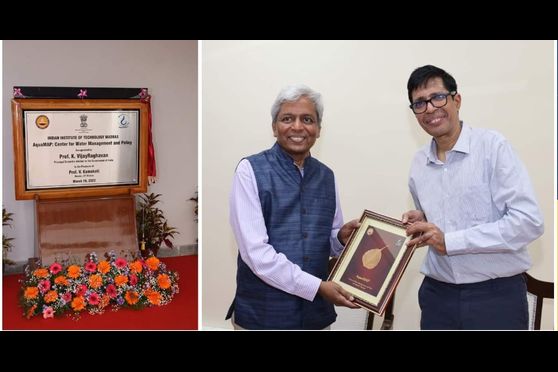The Indian Institute of Technology (IIT) Madras builds a new interdisciplinary water management and policy centre known as ‘AquaMAP’ to address India’s water issues. The centre will build scalable models employing novel technology to provide smart solutions for water concerns. As proof of concept, these models will be installed in various areas across the country.
Buy Prime Test Series for all Banking, SSC, Insurance & other exams
Key Points:
- Parasuram Balasubramanian, CEO, Theme Work Analytics, and Mr. Krishnan Narayanan, President, itihaasa Research and Digital, both IIT Madras alumni, have supported this project by contributing a seed grant of Rs 3 crore for two years and also assisting in the development of the five-year plan.
- AquaMAP’s Principal Investigator is Professor Ligy Philip. She will be aided by a group of 20 faculty members working on water-related topics from a variety of departments, including chemistry, civil engineering, chemical engineering, mechanical engineering, electrical engineering, management, humanities, and social sciences.
- Aqua Map is governed by a board of directors directed by the director of IIT Madras and an advisory board made up of experts in the fields of water technology, management, and policy.
- AquaMAP will work with other water research institutions at IIT Madras, including Sutram, the International Centre for Clean Water (ICCW) At IIT Madras, and the PCoE on Water and Sustainability, as well as other partners.
- In addition, a state-of-the-art hydro-informatics laboratory will be established, as well as a model for alumni and community participation.
About AquaMap:
The capacity is one of the primary outputs that AquaMAP is projected to deliver in the medium or long term. The ability to address complex real-life water problems through consortia approaches, establish as an entity that can deliver solutions with wide impact and application, address at least three chronic water issues through grand challenges and their successful translation into pilot projects, and complete pilot studies in at least six water innovation villages or towns that can be replicated are among the key outcomes expected from AquaMAP in the medium or long term.
Find More News Related to Agreements




 International Day for Disarmament and No...
International Day for Disarmament and No...
 National Panchayati Raj Day 2026: Why 24...
National Panchayati Raj Day 2026: Why 24...
 Scotland Legalises Water Cremation: Firs...
Scotland Legalises Water Cremation: Firs...








